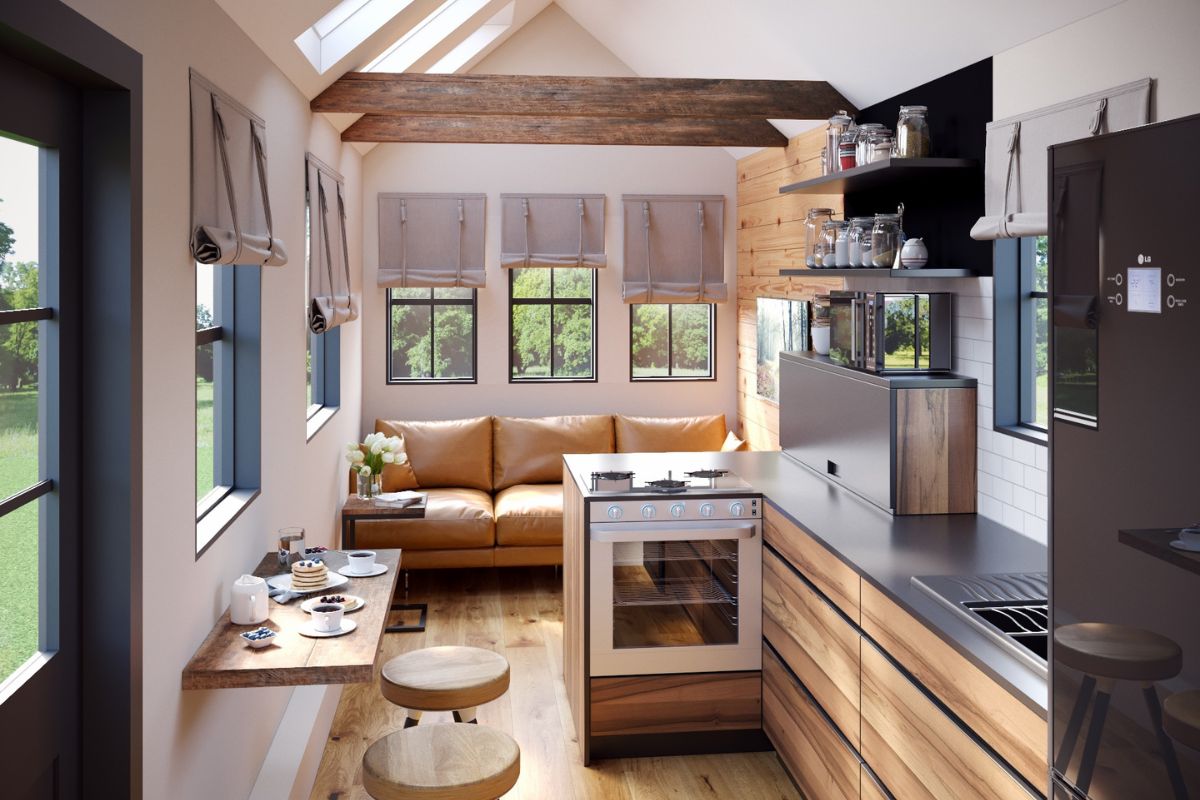Understanding Tent Living With Kids

Photo by Ambitious Studio* - Rick Barrett on Unsplash
Adventure awaits in the world of tent living with kids! There's nothing quite like living off grid with kids, promoting eco friendly living and introducing them to a truly nomadic lifestyle. This ain't just camping; it's a full blown family lifestyle change, immersing children and nature together.
- Tent living with kids offers unique learning experiences in nature.
- It's an excellent opportunity for quality family time and creating lasting memories.
- Proper gear, including child-friendly equipment, is crucial for a successful trip.
- Teach kids about outdoor safety and keep them engaged with nature activities.
- Be prepared to adapt to changing weather and kids' needs during the trip.
The Basic of of Tent Living
While tent living may appear unconventional, it offers a unique sense of freedom and a closer connection to nature that can be incredibly rewarding. With kid friendly camping tips and resources in hand, you can teach your youngsters the basic fundamentals of wilderness survival with children. However, before we look into the specifics, it's crucial to grasp the essential aspects of tent living when considering it as an option for your family.
Selecting the Appropriate Tent
The initial step in tent living involves choosing the right tent for your family. It should comfortably accommodate your family members while providing adequate space for living, sleeping, and storage. Look for sturdy materials and efficient ventilation to ensure a comfortable living environment.
Choosing the Right Location
The location where you set up your tent home is of utmost importance. Many families opt for campgrounds or rural areas that allow them to immerse themselves in nature's beauty. It's vital to research and select a location that aligns with your lifestyle and provides access to essential amenities such as water sources and restrooms.
Embracing Minimalist Living
Whether in a traditional or a tent and mobile tiny homes, adopting a minimalist lifestyle is essential. Reduce your possessions to the essentials and focus on quality over quantity. Assess what truly matters to your family and declutter accordingly.

Essential Items for Tent Living with Families
When it comes to tent living, there's a lot to consider with tent living essentials. You have to think about outdoor living spaces and safety for kids, your base family tent life provisions, and general tent living tips to keep things smooth. Now that you have a basic understanding of tent living, here are the essential items and considerations that can make tent living with kids a comfortable and enjoyable experience.
Sleeping Arrangements
Ensuring everyone has a comfortable and secure place to sleep is a top priority in tent living. Invest in high-quality sleeping bags or air mattresses and don't forget warm blankets and pillows to enhance comfort. Consider setting up a separate tent or sleeping area for kids if space permits.
Cooking Facilities
Cooking in a tiny house, whether on wheels or in a canvas structure, necessitates careful planning. Portable camping stoves, compact cookware, and a cooler can help you prepare meals efficiently. Embrace the opportunity to cook together as a family, imparting valuable life skills to your kids.
Effective Storage Solutions
In a compact space, effective storage is crucial. Utilize storage bins, hanging organizers, and collapsible furniture to maximize space. Encourage your children to keep their belongings organized to maintain a clutter-free living environment.
Hygiene and Sanitation
Maintaining cleanliness and sanitation is vital for a comfortable tent living experience. Portable toilets, solar showers, and eco-friendly cleaning products can assist in maintaining a hygienic living space while minimizing your environmental impact.
Power and Connectivity
Although one of the appeals of tent living is disconnecting from the digital world, you may still require some power for essentials such as charging devices or lighting. Solar panels and portable power banks are excellent options for staying connected while off the grid.

Skills & Activities for Kids in Tent Living
Living in mobile tiny homes, whether a tent or another small space, provides a fantastic opportunity to impart valuable life skills to your children and engage in enriching activities. Here are some ideas to make tent living a fulfilling experience for your kids:
Exploration of Nature
Being in close proximity to nature enables children to explore the outdoors regularly. Encourage them to embark on nature hikes, identify local plants and wildlife, and gain firsthand knowledge of the environment. This hands-on experience fosters a deep connection with nature.
Cooking and Meal Preparation
Involve your children in cooking and meal preparation. Teach them how to prepare simple, nutritious meals using minimal equipment. This not only strengthens family bonds but also imparts essential life skills.
Outdoor Games and Sports
Overcoming space limitations is possible by engaging in outdoor games and sports. Activities like frisbee, soccer, and nature scavenger hunts are excellent options to keep kids active and engaged.
Gardening
If you have outdoor living spaces near your tent, consider starting a small garden. Children can learn about gardening, cultivate their vegetables, and develop an appreciation for sustainable living.
Artistic Expression
Creativity knows no boundaries, even in a tiny house. Encourage your kids to explore their artistic side through activities such as drawing, painting, or crafting. Create a designated art area within the tent to facilitate their creative endeavors.
Outdoor Education
If you are homeschooling your children while living in a tent, seize the opportunity to provide a unique and comprehensive education. Incorporate outdoor learning experiences and nurture curiosity and exploration.
Stargazing
Clear night skies away from urban areas offer an excellent opportunity for stargazing. Teach your children about constellations and the wonders of the night sky. Consider investing in a telescope for deeper celestial exploration.
Community Engagement
Many families who embrace tent living do so in communal settings. Encourage your children to interact with other families, fostering a sense of community and honing social skills.
Challenges and Considerations
While tent living with kids can be an incredibly enriching experience, it's essential to be aware of the challenges and considerations associated with this lifestyle:
Weather Variability
Be prepared for fluctuating weather conditions, including rain, wind, and cold temperatures. Invest in appropriate clothing and gear to ensure comfort during adverse weather.
Privacy
Living in close quarters can challenge a family's need for privacy. Establish boundaries and personal spaces within the tent to ensure everyone has their own area for downtime.
Education
If you are homeschooling your children, research and plan a curriculum that aligns with your family's values and goals. Ensure you have access to educational resources and materials.
Safety
Teach your children about outdoor safety, including how to handle encounters with wildlife, manage campfires, and administer basic first aid when needed.
Environmental Awareness
Instill a deep respect for nature in your children, emphasizing the importance of Leave No Trace principles and environmental conservation.
Conclusion
Tiny house living with kids can be an exciting and transformative experience, especially when you choose tent living as your preferred way of life. By understanding the fundamentals of tent living, equipping your family with essential items, and engaging in a variety of skills and activities, you can create a fulfilling and enriching lifestyle for your children. While there are challenges to overcome, the benefits of living close to nature and teaching your kids essential life skills make the journey worthwhile. Tent living is more than just a housing choice; it's an opportunity to create lasting memories and develop a deeper connection with the world around us. Teaching your kids to love life in the great outdoors can foster a lifelong respect for mother nature. No matter the weather, a rain or shine family camping experience is one they'll remember forever.







.jpg)


